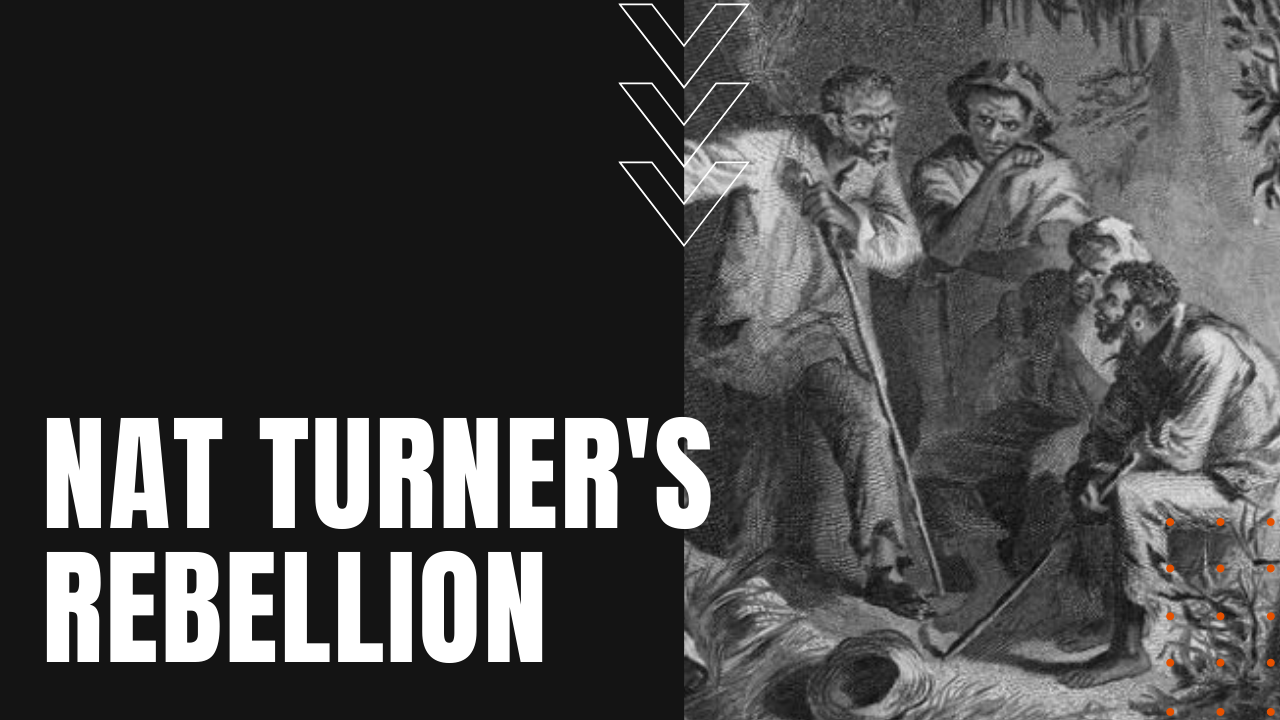Nat Turner’s Rebellion

Born in 1800 on the Southampton Virginia plantation of Benjamin Turner, in a county where the number of slaves outnumbered white people, enslaved African American Nat Turner was allowed to be instructed in reading, writing and Christianity from an early age, where he was quickly assessed as having “natural intelligence and quickness of apprehension.”
As he grew older, Turner became a deeply religious man, often seen fasting, praying and studying the Bible. Sold three times during his childhood, by the age of twenty, Turner had become a local firebrand preacher and standout leader of his fellow slaves, claiming to have visions which he interpreted as direct messages from God.
At age 21, he escaped from his current owner, Samuel Turner, returning a month later after becoming delirious from hunger, at the same time claiming that a second commandment from God had instructed him to “return to the service of my earthly master.”
Nat Turner’s Slave Rebellion
By the age of 30, Turner was convinced that he was chosen by God to lead his fellow slaves out of bondage, and after an eclipse of the sun convinced him that the time was now, he first enlisted four other slaves to conduct a violent insurrection, until they were forced to abort their attempt for a planned second try on August 21st, 1831. This time, Turner and six others killed the slave-owning Travis family, securing arms and horses before enlisting 75 additional slaves into a bloody insurrection that resulted in the murder of an estimated 55 to 65 white people.
After the two-day killing spree was put down at Belmont Plantation, Turner managed to evade authorities for six weeks, during which time, militias and angry white mobs killed an estimated 160 slaves.
How Did White Virginians Respond to Nat Turner’s Rebellion?
After his capture, Turner was tried and hanged at Jerusalem Virginia, along with 16 of his followers. The bloody rebellion evoked swift action from state legislators, who passed strict laws prohibiting education for free and enslaved blacks alike, while requiring white ministers to be present at all-black worship services held in the state. Turner’s rebellion put such fear in the hearts of Virginians, that it effectively extinguished any and all organized emancipation groups in the region, further deepening the divide between slave-holders and abolitionists, until the issue came to a head with the onset of Civil War.
